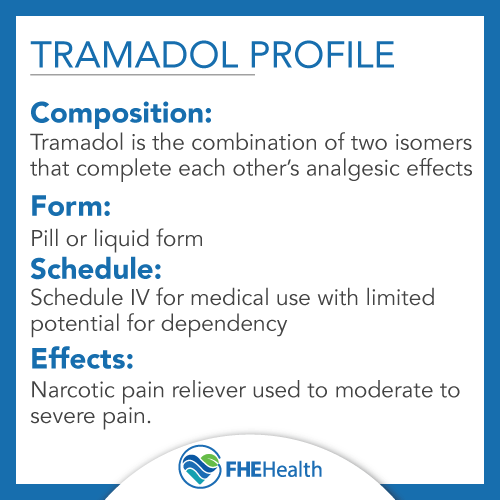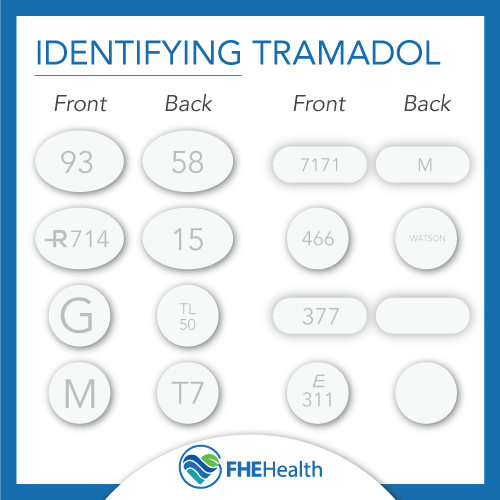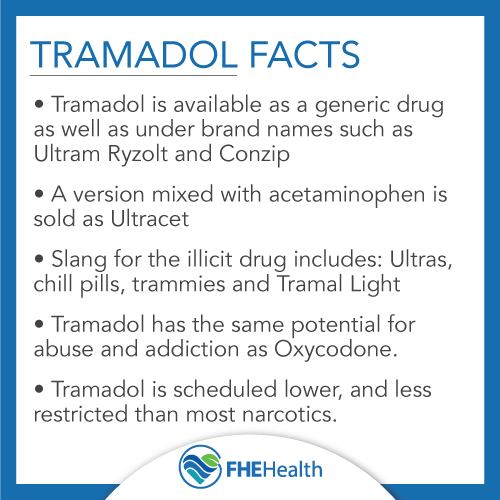
Is Tramadol a Narcotic – Is Tramadol an Opioid?
Tramadol is a habit-forming drug that is often prescribed for the purposes of pain management. But tramadol also poses serious side effects and high risks for addiction. The drug is both a type of opioid and a narcotic, abuse of which can lead to overdose and life-threatening complications.
Identifying Tramadol
 Most of the time, doctors prescribe tramadol as a painkiller for moderate to severe pain levels and following surgery or a significant injury. Sometimes the drug can also be helpful in treating those with chronic pain of the kind that occurs with conditions like fibromyalgia.
Most of the time, doctors prescribe tramadol as a painkiller for moderate to severe pain levels and following surgery or a significant injury. Sometimes the drug can also be helpful in treating those with chronic pain of the kind that occurs with conditions like fibromyalgia.
Tramadol is available under certain brand names including Ultram, Ultram ER, Ryzolt and ConZip, and can occur in different generic variations as well. (Tramadol is the main generic version.) Combinations that mix acetaminophen and tramadol sometimes sell under the brand name Ultracet.
Is tramadol a street drug? It can be. On the street, illicit users may call it “ultras,” “chill pills” or “trammies.”
Because of the various types and brands of this pain medication, it is available in several styles and shapes. Most often, doctors prescribe it in pill form. The pills are available in 50 mg doses. They tend to be oval-shaped, white pills. However, tramadol hydrochloride, another combination, is a white, round pill. Other colors and shapes are possible depending on the generic product used. Some forms of the drug are available as capsules.
What Does Tramadol Do?
Doctors prescribe tramadol as a pain treatment, most of the time for severe pain. The drug works by binding to opioid receptors in the brain. This, in turn, helps to reduce the intensity of the pain signals the brain feels, decreasing any discomfort the user feels.
Though tramadol can be highly addictive, it is one of the least potent opioid painkillers. As a result, it may not provide the highest level of pain relief for some people.
Doctors typically prescribe it as an extended-release medication. This allows the medication to slowly release into the body over a period of time, providing a small amount of pain relief for hours.
How Long Does Tramadol Stay in Your System?
Most of the time, doctors prescribe it to patients to take as needed. For those with a chronic condition, routine use of the drug is possible. In this case, patients take it every four to six hours. Extended-release pills can provide help for over a 12 to 24-hour period. The drug remains active and present in the system for between 6 and 24 hours— sometimes longer depending on dosage. The drug can be detected through toxicology screening for much longer.
Addiction to Tramadol
Because of its classification as an opioid, tramadol is a high-risk drug to use. As noted by the National Institute on Drug Abuse, an estimated 130 people die each day in this country from using opioids. In 2017, 47,000 people died as a result of taking opioids. Tramadol is among the drugs that can cause overdose and death, both with one-time use and with chronic use.
 Initially, tramadol can offer mild to moderate pain treatment. Yet, over the course of several uses, it can cause a number of more intense side effects.
Initially, tramadol can offer mild to moderate pain treatment. Yet, over the course of several uses, it can cause a number of more intense side effects. Recognizing the potential for tramadol addiction is important. Because many perceive this drug as less of a risk than other types of opioids, it is easy to overlook the impact it can create. Some signs of potential abuse of this drug include the following:
Recognizing the potential for tramadol addiction is important. Because many perceive this drug as less of a risk than other types of opioids, it is easy to overlook the impact it can create. Some signs of potential abuse of this drug include the following:





